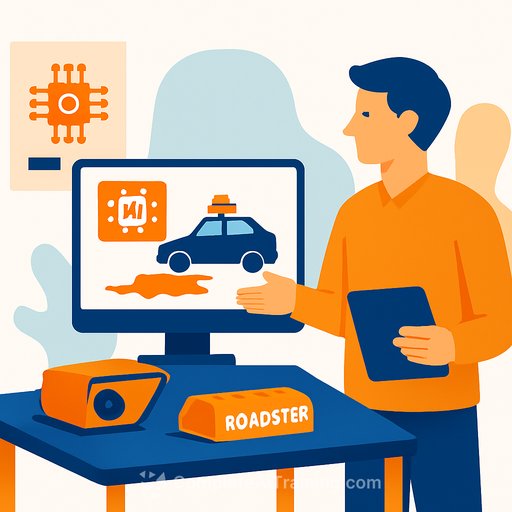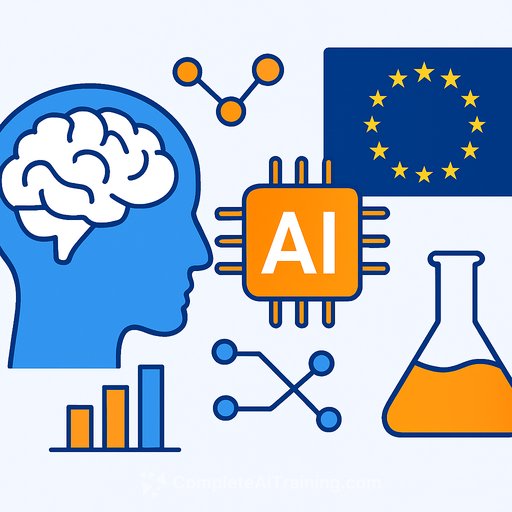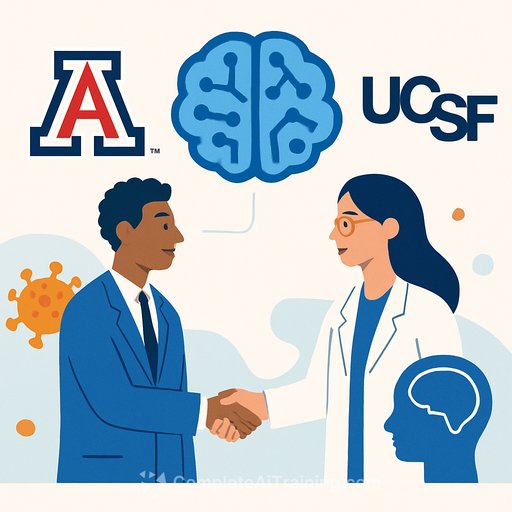UGM Researchers Present AI-Powered Road-Damage Detector “ROADSTER” at 2025 Science Convention
A team from Universitas Gadjah Mada (UGM) introduced ROADSTER, an AI-based device designed to detect road damage, at the 2025 Indonesian Science, Technology, and Industry Convention (KSTI) in Bandung. The device identifies cracks, potholes, and deformations in road surfaces using a combination of sensors and advanced AI algorithms.
Featured within the Digitalization, Artificial Intelligence, and Semiconductor cluster, ROADSTER supports the convention’s theme: “Science and Technology for Economic Growth and Equity.” The system integrates AI, IoT, and visual recording to perform automated road condition assessments, providing real-time data to assist infrastructure management.
Technology and Development
Led by Dr. Agustinus Winarno from UGM’s Department of Mechanical and Civil Engineering, the project involved active contributions from students Octaviano and Fauzan Karnadi. During the exhibition, the team demonstrated a prototype that maps detected road damages onto a dashboard, offering actionable insights for stakeholders.
The technology addresses Indonesia’s infrastructure challenges by providing precise and timely information, enabling more effective road maintenance decisions. The integration of AI facilitates faster detection compared to traditional manual inspections.
Strategic Importance and Collaboration
ROADSTER not only showcases UGM’s commitment to applied research but also supports national digital transformation goals highlighted by President Prabowo Subianto at the convention’s opening. The president emphasized an 8 percent economic growth target driven by technological advancement and industrialization, areas where tools like ROADSTER contribute directly.
Plans are underway to develop a community-based road reporting app, promoting public participation in infrastructure monitoring. The Yogyakarta Public Works and Housing Agency is already collaborating as a field partner, helping to validate and implement the system on a larger scale.
Convention Impact and Future Prospects
With over 3,000 attendees, including distinguished figures such as Nobel Laureates Professor Novoselov and Professor Schmidt, KSTI 2025 provided a valuable platform for expanding multi-sector partnerships. ROADSTER aims to extend its impact both nationally and internationally, setting a precedent for AI applications in infrastructure maintenance.
- Automated detection of road cracks, potholes, and deformation
- Real-time visual data mapped onto an accessible dashboard
- Community engagement through planned reporting apps
- Collaboration with local government agencies
- Contribution to national digital infrastructure and economic growth goals
For professionals interested in AI applications like ROADSTER, exploring courses on AI algorithms and IoT integration can provide practical skills to develop similar solutions. Resources such as Complete AI Training’s latest AI courses offer comprehensive learning paths.
Your membership also unlocks:






